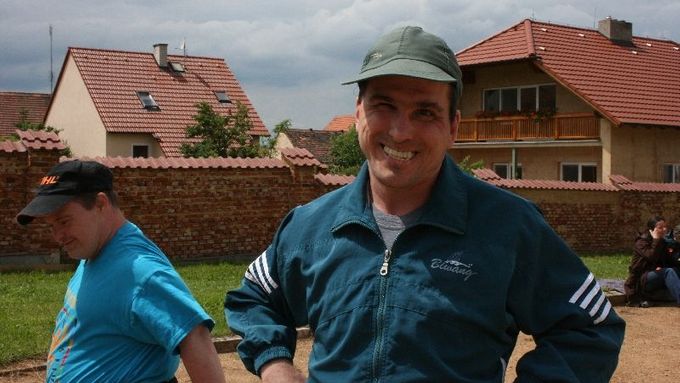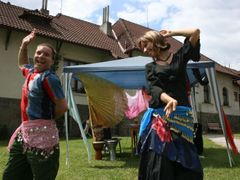Stod - Not all the social care homes in the Czech Republic deserve to be criticized by the British public service broadcast BBC.
Last month Labor Minister Petr Nečas awarded three social care homes in central Bohemia for successful integration of the physically and mentally handicapped into society.
The home for people with physical disability in western Bohemian little town of Stod sets an example how to run integration projects effectively, while trying to imitate every day life for their clients.
Success story
Stod´s care home has stopped using cages a long time ago. Director Radomír Bednář can hardly remember when it was, for there were not caged beds when he joined the care home three years ago.
"In our care home all users have a tailored service package, which includes what the user would like to do in his life and what he can actually achieve with his disabilities," explains Radomír Bednář.
Cleaning and singing
Kája has been living in Stod´s social care home for 15 years now, having coped up with his mental handicap in an excellent way. He knows how to make tea, clean the whole room, fold washed clothes and goes to a nearby church every Sunday morning to help the local priest.
Kája says he likes to clean and watch music programs on TV, and then he names all the popular Czech singers you can imagine.
His room, which he shares with his roommate Stáňa, is as clean as a whistle and has a little kitchen. "Here I make tea every evening and these cups are all mine," says Kája proudly, having opened the cupboard.
There is a photograph of a choir on a little coffee table, just next to a framed picture of Virgin Mary, where he goes every week.
Never enough
Under the support of Pilsen regional authorities a number of action programs have been drawn for Stod´s clients, including a series of skill enhancement courses. Out of 180 clients two thirds are alleged to attend the training.
Twenty users are fully employed outside the social care home, while four of them have a job in the care home's cafeteria. They receive a regular monthly salary, says Bednář.
"The global trend is deinstitutionalization, which means care services are provided via a social care center where the users are supported to be as independent as they can and they are provided outsourced services," adds Radomír Bednář.
"Of course, there is never enough money for the integration but we can always ask for grants. At the moment we are about to submit an application for an EU grant with the help of which we will create a protected housing project downtown Stod. It will have a number of flat units, a bakery and a shop."
Clients with light disability will thus have a chance to live entirely independently outside the social care home. A 24-hour assistance service will be available for them in the house.
Sixth day
This month Stod´s social care home saw the third year of a cultural festival called The Sixth Day. Its goal is to bring the citizens of Stod closer to the social care home "dwellers" by engaging them all in a variety of theatre, dance and music performances.
Products and artifacts made by the clients are for sale that day - hand-made carpets, painted pottery, oil paintings and color-painted paper boxes - all original and a thousand times more inventive than those from Ikea.
"We want the citizens of Stod to be aware our clients have the same desires and needs and some of them are very skillful knowing how to make interesting things," says Stod´s social care home employee Dana Levorová.
So happy today
Arab melodies pour out of a stand nearby, adorned with colorful scarves where a young woman with glitzy decoration around her waist is teaching a boy named Kubík how to dance Arabic belly dance. Kubík is all smiles, saying tirelessly "I am so happy today!"
A few hundred meters away people are dancing, too. Local rock bands are playing hits that everybody on the improvised dance floor seems to know and enjoy. Perhaps it is their happy day, too, they just don't verbalize it, as Kubík does.


